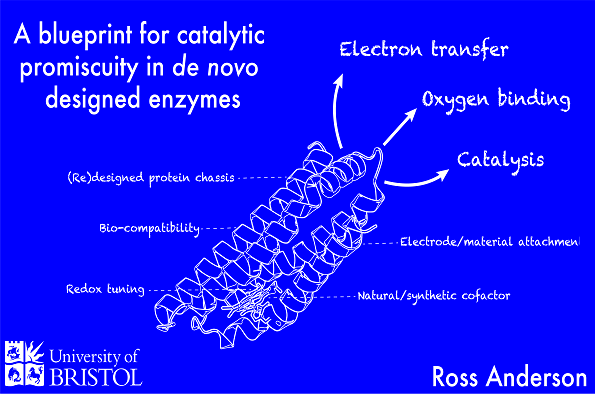
A Blueprint for Catalytic Promiscuity in de novo Designed Enzymes
- Daniel Canniffe
- Suitable for: Those with an interest in Genomes, Systems and Therapeutic Targeting
- Admission: Free
Add this event to my calendar
Click on "Create a calendar file" and your browser will download a .ics file for this event.
Microsoft Outlook: Download the file, double-click it to open it in Outlook, then click on "Save & Close" to save it to your calendar. If that doesn't work go into Outlook, click on the File tab, then on Open & Export, then Open Calendar. Select your .ics file then click on "Save & Close".
Google Calendar: download the file, then go into your calendar. On the left where it says "Other calendars" click on the arrow icon and then click on Import calendar. Click on Browse and select the .ics file, then click on Import.
Apple Calendar: The file may open automatically with an option to save it to your calendar. If not, download the file, then you can either drag it to Calendar or import the file by going to File >Import > Import and choosing the .ics file.
Bespoke protein catalysts compatible with the natural biomolecular components of living cells are key to realizing the ambitious goals of synthetic biology and to the provision of cheap, green catalysts for industrial biotechnology. To this end, I believe that simple, de novo proteins naïve to the evolutionary process can provide excellent scaffolds for enzyme design, and here I highlight the work of my lab in constructing heme-containing de novo proteins that exhibit both biologically relevant and abiotic catalytic activities that equal and surpass those of many natural and engineered enzymes. I will show how a relatively simple design process is sufficient to create C45, a thermostable, artificial c-type cytochrome with exceptionally diverse catalytic activities – including peroxidase, oxidative dehalogenase and carbene transferase activities – that is fully assembled and catalytically active in vivo. Since C45 exhibits a high tolerance to organic solvents, I will also highlight my group’s work in encapsulating C45 into hydrogel beads, producing a versatile heterogeneous catalyst formulation that maintains the enzymatic activity of the de novo enzyme even in neat non-polar organic solvents. Finally, I will describe our recent design of b-type heme-containing proteins, demonstrating how fundamental biophysical properties such as redox potential can be successfully and precisely selected in silico.
